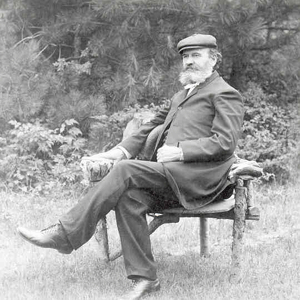A Quote by Colin Wilson
Now the basic impulse behind existentialism is optimistic, very much like the impulse behind all science. Existentialism is romanticism, and romanticism is the feeling that man is not the mere he has always taken himself for. Romanticism began as a tremendous surge of optimism about the stature of man. Its aim - like that of science - was to raise man above the muddled feelings and impulses of his everyday humanity, and to make him a god-like observer of human existence.
Related Quotes
Sir Hiram Maxim is a genuine and typical example of the man of science, romantic, excitable, full of real but somewhat obvious poetry, a little hazy in logic and philosophy, but full of hearty enthusiasm and an honorable simplicity. He is, as he expresses it, "an old and trained engineer," and is like all of the old and trained engineers I have happened to come across, a man who indemnifies himself for the superhuman or inhuman concentration required for physical science by a vague and dangerous romanticism about everything else.
Existential psychotherapy is the movement which, although standing on one side on the scientific analysis owed chiefly to the genius of Freud , also brings back into the picture the understanding of man on the deeper and broader level man as the being who is human. It is based on the assumption that it is possible to have a science of man which does not fragmentize man and destroy his humanity at the same moment as it studies him. It unites science and ontology .
The design of a book is the pattern of a reality controlled and shaped by the mind of the writer. This is completely understood about poetry or fiction, but it is too seldom realized about books of fact. And yet the impulse which drives a man to poetry will send another man into the tide pools and force him to try to report what he finds there.... It would be good to know the impulse truly, not to be confused by the 'services to science' platitudes or the other little mazes into which we entice our minds so that they will not know what we are doing.
Many people correctly make the point that our only hope is to turn to God. For example, Charles Lindbergh, who said that in his young manhood he thought "science was more important than either man or God," and that "without a highly developed science modern man lacks the power to survive," . . . went to Germany after the war to see what Allied bombing had done to the Germans, who had been leaders in science. There, he says, "I learned that if his civilization is to continue, modern man must direct the material power of his science by the spiritual truths of his God."
Modern" poetry is, essentially, an extension of romanticism; it is what romantic poetry wishes or finds it necessary to become. It is the end product of romanticism, all past and no future; it is impossible to go further by any extrapolation of the process by which we have arrived, and certainly it is impossible to remain where we are who could endure a century of transition ?
I think men of science as well as other men need to learn from Christ, and I think Christians whose minds are scientific are bound to study science that their view of the glory of God may be as extensive as their being is capable. But I think that the results which each man arrives at in his attempts to harmonize his science with his Christianity ought not to be regarded as having any significance except to the man himself, and to him only for a time, and should not receive the stamp of a society.







































